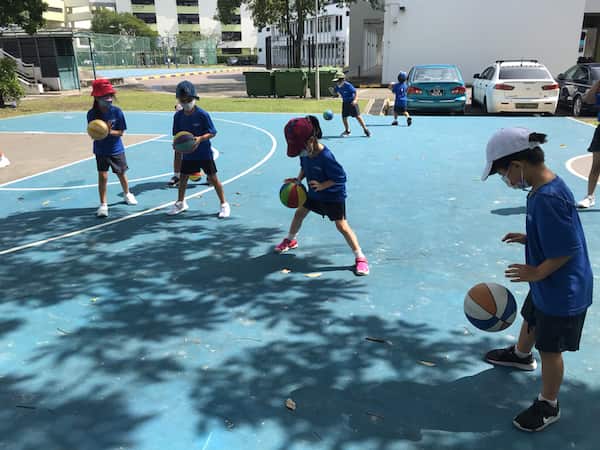Physical education plays an integral role in the school curriculum, mainly because the activities and lessons included in the physical education classes encourage children to live a healthy lifestyle. These fast-paced, action-packed classes give energetic students an opportunity to stay active during the school day, but they also teach children essential life skills that they will need now and in the future.
Values that can be Taught Through Physical Education
On the surface, it may seem like physical education (PE) is a class where students learn about the fundamentals of sports, the rules of various games and the exercises they can do to stay healthy, fit and active. However, the dynamic lessons of PE also reinforce human values that all children can benefit from, including:
- Kindness – In a physical education class, it’s going to be apparent that some children are natural athletes while others may struggle with specific skills. Therefore, it’s a perfect opportunity to point out that, despite any differences, children can and should be kind to one another.
- Sportsmanship – Competition is a part of life, and it’s imperative that children learn the values of sportsmanship from an early age. In physical education classes, students celebrate their accomplishments without bragging about them or putting others down in the process. If they are on the losing side, they congratulate the winners and reflect on how they can perform better the next time.

- Collaboration – Teamwork is an integral component of the physical education curriculum. When students work in a team setting, they learn how to divide tasks, assist one another and work toward a common goal. In addition, they learn that there are multiple paths toward success and that individual and group goals are important.
- Honesty – Sports provide the perfect avenue to learn about the importance of honesty and playing fair. Students learn to play by the rules and to work hard to accomplish their goals.
- Resilience – In the event of a disappointing loss, children learn that they can, and should, get back up again. The physical education classroom is a relatable, real-world setting where children can safely learn to become resilient individuals.
- Leadership – When children work together in groups or as part of teams, they begin to understand what it takes to become a good leader. They can try out their own leadership skills in a comfortable setting where they will receive immediate feedback from their peers and instructors.
How We Teach Values Through PE at OWIS

Our innovative physical education curriculum promotes a healthy, active lifestyle among our students and instils in them important values. We do this in numerous ways, such as:
- Encouraging our students to play team games – Through different team sports, we teach our students a variety of physical skills and the core values mentioned above. Cooperative, team building games offer the opportunity for children to build a community, work according to other people’s styles and get to know each other by working towards a common goal.
In our Early Childhood programme, our youngest learners begin their adventures in physical education by throwing a ball back and forth to one another and through other fun games.
By International Primary School, they have the opportunity to participate in a variety of team sports, including floor gymnastics, court games, team games, Outdoor Adventurous Activities (OAA), striking and fielding, basketball, tennis, football, t-ball/rounders, tag rugby, floorball and futsal.
When they get to International Secondary School, they are prepared for more advanced sports, such as badminton, volleyball, hockey, handball, softball, track and field, gymnastics, table tennis and basketball. All these games in the outdoor field or the Multi-purpose Hall encourage cohesion, collaboration and communication and build a sense of togetherness amongst classmates. After-all, there is no “I” in the word “team”.
- Planning sports events – Our Sports Days are exciting events that bring the entire school community together. On Sports Days, the houses come together to cheer each other on and compete in a variety of different events. Most students report that Sports Days are their favourite days of the year, largely because there is a collective sense of teamwork that everyone on campus enjoys.
- Modelling kindness – Through role-play and the use of real-life examples and demonstrations, our Physical Education educators impart the value of compassion. They make use of teachable moments during lessons to guide students to develop the spirit of sportsmanship not just in PE classes, but as part of their deportment.
At OWIS, students in all grades learn many positive attributes in their sports and fitness lessons that carry over into their overall academic performance. For example, in PE class, we teach positive values, such as sportsmanship, teamwork and honesty, and skills such as striving for best personal performance, positive self-esteem and group participation. We believe that learning values and skills important in one area of study can help another. For example, good sportsmanship is taught in all PE classes, and is also extremely beneficial in all other academic areas, especially when working in teams.
We also see that participating in team sports is a good way of building self-esteem and confidence. In all grades, self-esteem is very important for students to do their best thinking and to increase interactions with teachers and other students. Students who believe in themselves seem far more able to ask more questions, and are willing to work hard to find the answers when needed.
At OWIS, we are proud of the fact that we offer a well-rounded, rigorous curriculum at both our Nanyang and Suntec campuses. With experienced physical education teachers as their guides, our students enjoy the time that they spend in PE lessons. They also learn the 21st-century skills they will need to succeed in their other goals.
For more information about our well-rounded curriculum at OWIS, please join our school tour.















